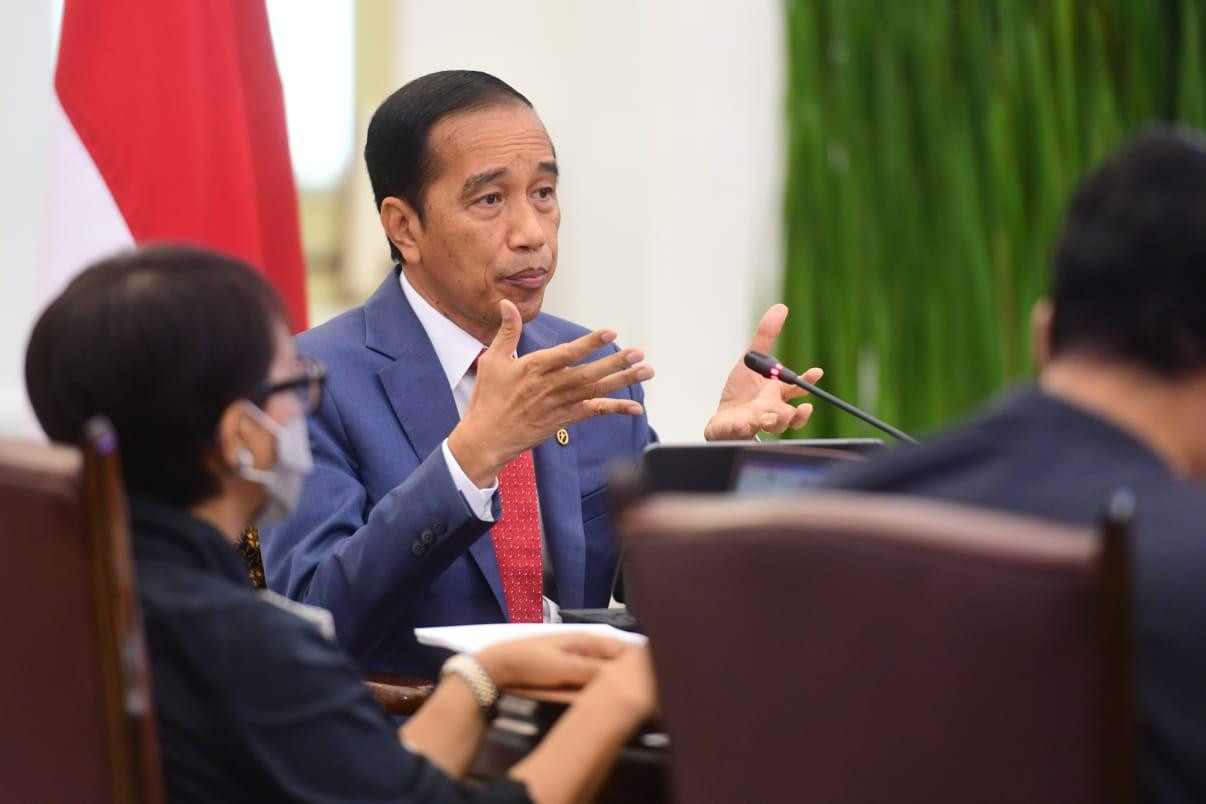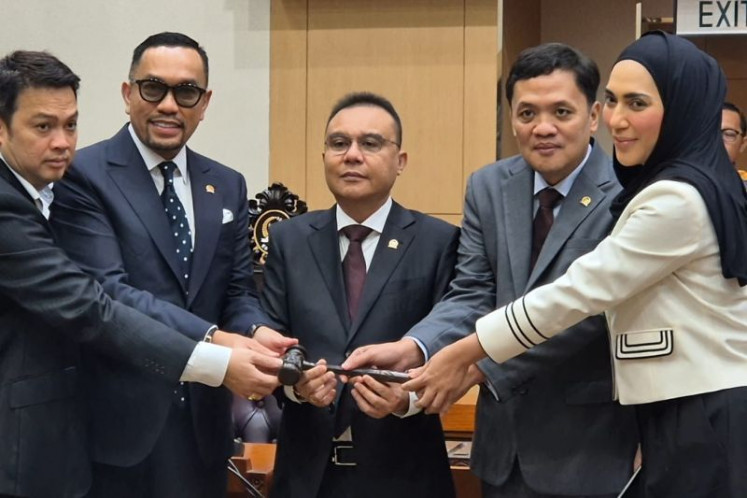Popular Reads
Top Results
Can't find what you're looking for?
View all search resultsPopular Reads
Top Results
Can't find what you're looking for?
View all search resultsJokowi calls for weekly energy, food security meetings
The President has called for Cabinet meetings specifically to address soaring commodity prices and food security.
Change text size
Gift Premium Articles
to Anyone
A
mid the global economic turmoil caused by the Russian invasion of Ukraine, President Joko “Jokowi” Widodo has called for weekly limited Cabinet meetings to address energy issues and food security.
The move, aimed at improving state control over commodity and basic goods prices, was announced during a plenary Cabinet meeting on Monday.
Noting that both issues were crucial, Jokowi warned his staff to not take the matter lightly and to prepare for Russian President Vladimir Putin’s invasion of Ukraine to be drawn out. He said he expected a worldwide recession partly in response to the United States’ increasingly tight monetary policy.
“Detailed attention must be paid to the management of macroeconomics. On the micro scale, all ministries must be sure to keep up, particularly those relating to food and energy matters,” said Jokowi, as quoted by Tempo.co.
The precarious global economy and poorly enforced domestic regulations have created major financial issues for Indonesians.
A March survey by Kompas’ research and development unit found that 70 percent of Indonesians were struggling to buy basic necessities, in particular cooking oil. Some 66 percent of the same respondents agreed that the government was incapable of controlling the prices of staple goods.
Extreme fluctuations in the prices of staple goods have frustrated Jokowi, who for the last eight years has presided over the world’s largest crude palm oil exporter. In a drastic step that reverberated around the world, the President decided to ban palm oil exports effective from April 28 to replenish domestic supply and bring down soaring prices.
It is unclear whether the radical move is working as intended. Several local media outlets have reported recent drops in cooking oil prices, but others claim the price of the commodity is as high as ever. A common consensus, though, is that prices are still fluctuating erratically.
Bhima Yudhistira, executive director at the Center for Economics and Law Studies (Celios), has called Jokowi’s cooking oil policies “short-sighted”.
“The ban shows that Jokowi is seeking to boost his popularity by imposing these nationalist policies, but the CPO ban will only make palm oil farmers feel that [Jakarta] is betraying them,” he told a regional news outlet.
The price hike has taken a toll on Jokowi’s reputation. Local pollster Indikator Politik Indonesia found on April 26 that the President’s approval rating had fallen to 59.9 percent, down from 71.7 percent in February.
A follow-up survey from after the palm oil export ban found that Jokowi’s public approval had risen again.











